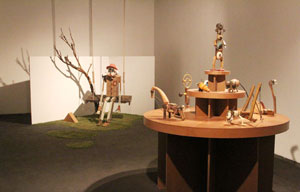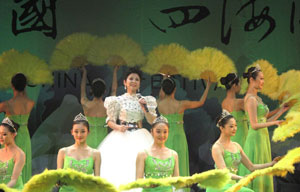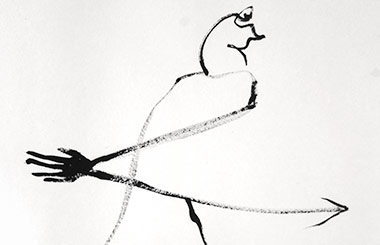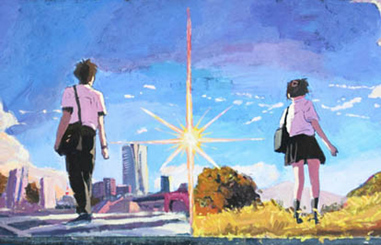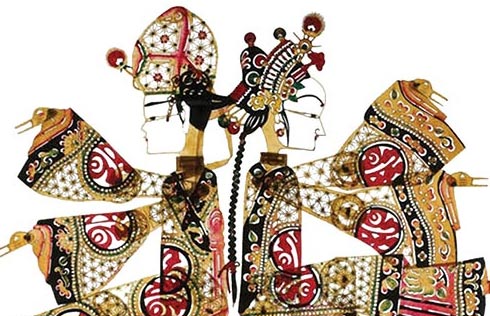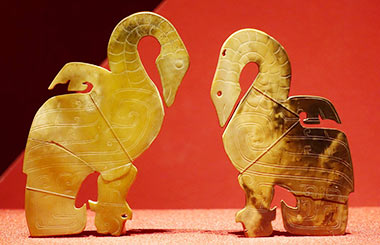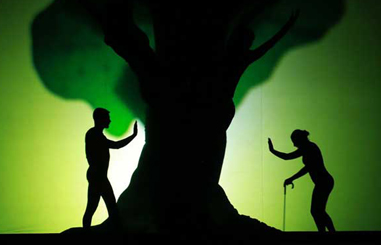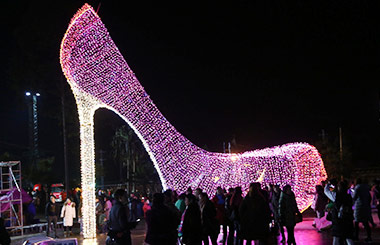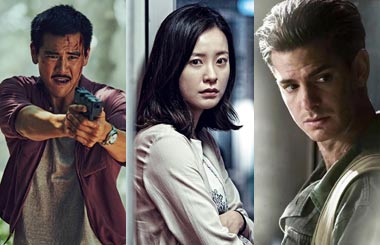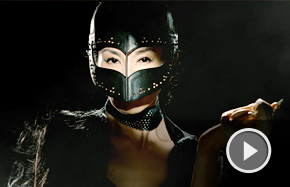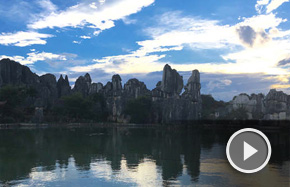Technology transforms art sharing
Is contemporary art for everyone? Is Chinese contemporary art for everyone? The answer is yes for Wendi Deng, the wife of media mogul Rupert Murdoch, and for Kenzo Digital, a director and video artist based in New York. Deng is also the founder of a new website called Artsy.
But, the way the two personalities approach the subject is very different.
Deng and Digital (whose real surname is not public) spoke at a recent panel discussion at the Asia Society on how technology is transforming art creation and collection.
Moderated by Melissa Chiu, the organization's director and senior vice-president of global arts and cultural programs, the discussion touches on the democratization of art and shifting modes of art dissemination.
Digital replaced Jerry Yang, co-founder of Yahoo, who was originally scheduled to speak but was absent because he was traveling.
Deng grew up during the post-"cultural revolution" (1966-76) era in China. She shared during the panel discussion that her experience with art was shaped by the images and visual vocabulary of a turbulent time.
Only upon moving to the US in 1988 did she learn that people "lived with artworks at home", she says.
Following her recent entry into the film industry as co-CEO of Big Feet Productions, Deng launched Artsy three months ago to connect galleries and art dealers with potential art collectors.
Comprising primarily contemporary art works from around the world, Artsy offers users free access to "21,000-plus artworks by 3,700-plus artists from leading galleries, museums, private collections, foundations, and artists' estates", according to the website. The company collects a commission from potential sales that are initiated via Artsy.
"The goal of Artsy is to make all of the world's art accessible to anyone with an Internet connection, to enable people to live with art," Deng says. The site will "focus on younger artists and help promote contemporary Chinese art on an international stage".
Notable names on Artsy include heavyweights like Zeng Fanzhi, Zhang Xiaogang and Zhang Huan, although many unknown artists are also included. The site is currently only available in English, but the company will soon launch a Chinese version to capture Chinese art collectors "who have flocked to the art market to diversify their investments", she says.
The site is a timely investment for Deng. In 2011, Artprice Annual Report listed 45 Chinese artists among the world's top 100 artists.
Contrary to Deng, whose focus is bringing artists and potential buyers together for business purposes, Digital has made many of his artworks available to audiences for free. Although most famous for his work with Beyonce for her highly celebrated 2011 Billboard performance, he has also made a name for himself with projects including the experimental hip-hop opera City of God's Son and his wildly popular 2008 ring tone Vote Obama. Both projects are available for free download.
Tapping into the tradition of Andy Warhol, Digital is interested in bringing different media into a dialogue and "hijacking the space" with newly invented visual and acoustic language, he says at the Asia Society.
He believes that art itself has transformed into a more democratic space of multiple media and art genres.
While Deng is also interested in the democratization of art, that includes access to information about the work - owning a piece of artwork advertised on Artsy still often requires deep pockets.
Digital is in a position to give away his work for free as a result of his commercial success.
Nevertheless, it is commendable that both Deng and Digital are devoted to changing the way people in China and elsewhere think about the availability of art for the masses.
lianliu@chinadailyusa.com




